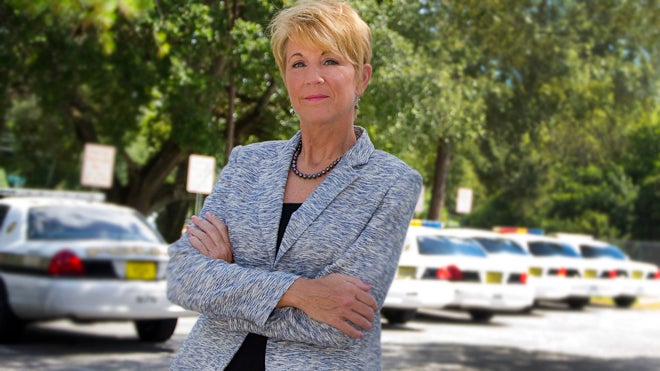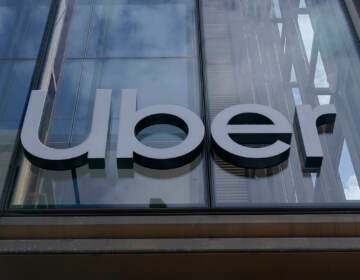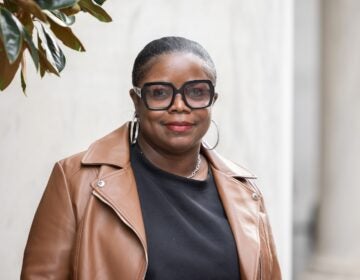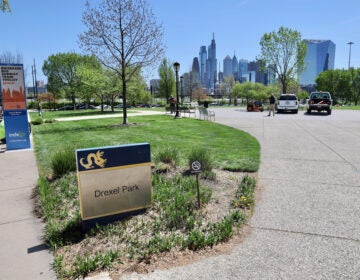Criminologist works with Philly police to unearth unconscious biases

Philadelphia police are training with national consultant Lorie Fridell to eliminate racial bias. (Lorie Fridell)
Criminologist Lorie Fridell kicked off her anti-bias training in front of a group of Philadelphia police captains recently by playing a clip from the UK’s version of “American Idol.”
“What’s your name, darling?” says Simon Cowell in the 2009 episode of “Britain’s Got Talent.”
“My name is Susan Boyle,” replies the middle-aged church volunteer wearing a long, frumpy dress in a video that’s been viewed 21 million times on YouTube.
Laughs and jeers fill the room, and the camera pans to audience members dropping their jaws in disbelief.
Boyle isn’t exactly the vision of a wannabe superstar singer.
But then she starts singing “I Dreamed a Dream,” and the crowd is floored. Everyone erupts in cheer.
“We present this as a non-threatening way to introduce how we draw conclusions of people just based on their appearance, and sometimes those conclusions are just wrong,” Fridell said.
It’s a lighthearted example of a serious problem at the heart of tense police-community relations, Fridell said. It’s a friction also highlighted by U.S. Justice Department, which released a report on police practice in Philadelphia last year finding “significant strife and distrust” between city police and community members.
Often, the Department of Justice found, “unconscious biases related to crime, threat perception and race” are tainting interactions. Critics of police practices like stop and frisk often say that racial profiling is part of the reason why the overwhelming targets of civilian stops are African-American men. But to Fridell, the prejudice is not that simple. She says it can be deeply eembedded, even latent within the police-community relationship.
And Fridell’s three-day training for police supervisors in Philadelphia — one she’s given to departments around the country — attempts to correct those silent biases. At first, many patrol officers are defensive when Fridell begins engaging on the issue of discrimination in policing.
“And this is very understandable, because we’ve treated law enforcement in this nation as if they have explicit biases,” she said. “That has been the nature of our training, that has been the nature of our discussion.”
But eventually, she said, they start to open up. She throws hypothetical scenarios at them, such as, “Imagine if you rolled up to a scene and you’re sizing up a group …
“Am I dealing with a white woman in a sundress, and might that make me under-vigilant? Am I dealing with a young African-American in a hoodie, and what conclusions do I draw about this person just based on appearance?” she says.
This kind of slowing-down-the-moment exercise is hugely important for police, she said. Following her advice, all new officers now have to go through exercises like this.
Philadelphia Police Department Academy recruits have to receive 24 hours of training on what they call “human relations,” and that includes training on perceptions of human behavior and sussing out bias.
“We need to recognize which characteristics might be linked to stereotypes,” she said. “And make sure that doesn’t impact the interaction.”
WHYY is your source for fact-based, in-depth journalism and information. As a nonprofit organization, we rely on financial support from readers like you. Please give today.




